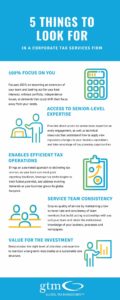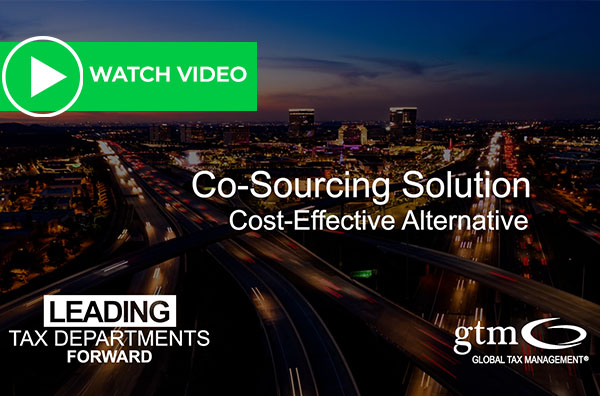In GTM’s recent webinar, “Proposed Regulations for Section 987: Is This It?” our experts examined the newest set of Section 987 proposed regulations released in November 2023.
In this article, we address frequently asked questions in more detail, arranged by topic. Unless otherwise noted, all references below to “Prop. Reg. §” refer to the 2023 Section 987 Proposed Regulations.
Application to CFCs
- Question: Does Section 987 apply to a foreign tax owner (controlled foreign corporation (“CFC”)) having a QBU?
- Answer: Section 987 does apply in any situation where the tax owner (e.g., CFC) has a different functional currency than the branch. Note that special rules apply to Qualified Business Units (“QBUs”) owned by CFCs, including coordination rules with the Subpart F and (Global Intangible Low-Taxed Income (“GILTI”) high-tax exceptions[1] and non-carryover of suspended Sec. 987 losses on inbound liquidations and reorganizations under.[2]
987 Gain/Loss Mechanics
- Question: Under the 1991 proposed regulations,[3] is cash movement from a QBU to the QBU owner to settle an intercompany payable (i.e., inventory purchase or services) treated as a remittance?
- Answer: Yes, under the 1991 proposed regulations, movements of cash or other property between a QBU and the QBU owner in disregarded transactions are generally treated as transfers of property that may constitute Section 987 remittances. For example, if a QBU repays a loan to the QBU owner in an otherwise disregarded, intra-taxpayer transaction, the transferred cash or property is a transfer that may be treated as a remittance. Similarly, if the QBU purchases property from the QBU owner in a disregarded transaction, the transfer of property is treated as a contribution of property to the QBU, and the payment by the QBU is treated as a transfer to the QBU owner. Each transaction must be analyzed under Section 987. For this reason, accounting for all remittances under the 1991 proposed regulations can be very complicated in practice. Taxpayers who have been applying the 1991 proposed regulations as their Section 987 method should assess whether their application of the 1991 proposed regulations qualifies as a reasonable method.
- Question: At what rate are contributions and remittances translated under the 2023 proposed regulations?
- Answer: Under the default Foreign Exchange Exposure Pool (“FEEP”) method, marked assets are translated using the spot rate applicable to the date of transfer, and historic assets are translated at the historic rate for the asset.[4] If a current rate election is in effect, all QBU assets are treated as marked items.[5]
- Question: Do the new regulations impact distributions between two QBUs with different functional currencies?
- Answer: Beginning from the 2006 proposed regulations,[6] a QBU could not be considered an owner of another QBU. Under this “flat” approach, tiered QBUs are each treated as held directly by the owner, and transactions between tiered QBUs are treated as transactions between brother-sister QBUs (i.e., as transfers from one QBU to the owner, followed by transfers by the owner to the other QBU). This approach has been retained in the 2023 proposed regulations.[7]
- Question: Can losses be carried forward indefinitely?
- Answer: Yes, unrecognized or suspended Section losses can be carried forward indefinitely. However, note that Section 987 losses do not carry over in certain transactions (e.g., inbound liquidations/reorganizations, Section 331 liquidations of QBU owners, etc.).
Election Consistency Rules
- Question: Are the elections in the 2023 proposed regulations at the QBU level or owner’s level? Can taxpayers pick and choose different elections for each owner or QBU?
- Answer: Elections are at the level of the QBU owner. A consistency rule requires elections to be made or revoked consistently for all members of the same consolidated group and all CFCs, partnerships, nongrantor trusts, and estates in which the ownership interests or beneficiary interests of the U.S. shareholder (or members of its consolidated group) exceed 50 percent.[8]
Transition Rules and Applicability Dates
- Question: What about the unrealized Section 987 losses derived before the 2023 regulations?
- Answer: By default, pre-transition loss becomes a suspended 987 loss in the transition year,[9] and is available, subject to the Loss-to-the-Extent-of-Gain Rule,[10] to offset 987 gains of the QBU owner in the same recognition group (i.e., from the same source and category of income). Alternatively, taxpayers can elect to recognize pretransition gain or loss ratably over 10 years.[11]
- Question: Is early adoption of the 2023 proposed regulations made on a QBU basis or by the entire consolidated group?
- Answer: Voluntary early adoption of the 2023 proposed regulations applies to the entire consolidated group. A taxpayer may choose to apply the 2023 proposed regulations to a taxable year beginning on or before December 31, 2024, and ending after November 9, 2023, provided the taxpayer and each member of its consolidated group and Section 987 electing group: (1) consistently apply the Section 987 regulations in their entirety to the taxable year and all subsequent taxable years beginning on or before December 31, 2024; and (2) apply the Section 987 regulations on their original timely filed (including extensions) returns in the first taxable year in which the Sec. 987 regulations apply.[12]
- Question: Can taxpayers have a different 987 method for QBUs that did not terminate during the transition period, or would a taxpayer be required to early adopt for ALL QBUs if it have a QBU that terminated on or after November 9, 2023?
- Answer: The special applicability date for QBUs terminating on or after November 9, 2023, applies only with respect to the terminating QBU, any successor deferral QBUs or successor suspended loss QBUs (in their capacity as such), and any net unrecognized Section 987 gain or loss, deferred Section 987 gain or loss, or suspended Section 987 loss with respect thereto.[13] Therefore, a terminating QBU would not force the rest of the group to early adopt the 2023 proposed regulations.
- Note that the 10-year amortization election only applies to pretransition gain/loss and cannot be made with respect to a terminating QBU. If a taxpayer has unrealized 987 losses in a terminating QBU which would become suspended 987 losses, and the taxpayer does not expect to be able to recognize this suspended loss under the Loss-to-the-Extent-of-Gain Rule (i.e., no future 987 gains in the same recognition group), the taxpayer may consider voluntarily early-adopting the 2023 proposed regulations in order to make the amortization election and allow the loss to be recognized.
Tax Accounting Considerations for Section 987
- Question: Is anything needed from a tax accounting/financial reporting perspective if the regulations are finalized?
- Answer: Assuming the taxpayer has not previously adopted the 2016 final regulations and does not intend to early-adopt the 2023 proposed regulations, the taxpayer should continue to compute current tax balances and related expense/benefit under its current 987 method prior to finalization. When the 2023 proposed regulations are finalized, the taxpayer will need to adjust its current and deferred tax balances for US GAAP in the reporting period when the regulations are finalized, taking into account pretransition unrecognized Sec. 987 gains/losses. Note that the ultimate tax accounting impact will depend on each taxpayer’s historic position(s) for recording deferred taxes on basis differences (both inside and outside basis) related to unrealized foreign exchange. Factors such as whether ultimate realization would generate GILTI or Subpart F income and the taxpayer’s indefinite reinvestment assertion for outside basis differences under US GAAP may dictate the deferred tax treatment. Taxpayers should consult with their financial statement auditors given the various interpretations and complexities around this topic.
GTM’s International Tax Services team can assist you with all aspects of Sec.987. Contact us below to explore how we can help.
[1] Prop. Reg. § 1.987-6(b)(2).
[2] Prop. Reg. §1.987-13(g).
[3] INTL-965-86, 56 Fed. Reg. 48,457 (September 25, 1991).
[4] Prop. Reg. §1.987-2(d).
[5] Prop. Reg. §1.987-1(d)(2)
[6] REG-208270-86, 71 Fed. Reg. 52,876, 52,890 (September 7, 2006).
[7] Prop. Reg. §1.987-1(b)(5).
[8] Prop. Reg. §1.987-1(g).
[9] Prop. Reg. §1.987-10(e)(5)(i)(B).
[10] Prop. Reg. §1.987-11(e). Prop. Reg. §1.987-10(e)(5)(i)(B).
[11] Prop. Reg. §1.987-10(e)(5)(ii).
[12] Prop. Reg. §1.987-14(b).
[13] Prop. Reg. §1.987-14(a)(2).



